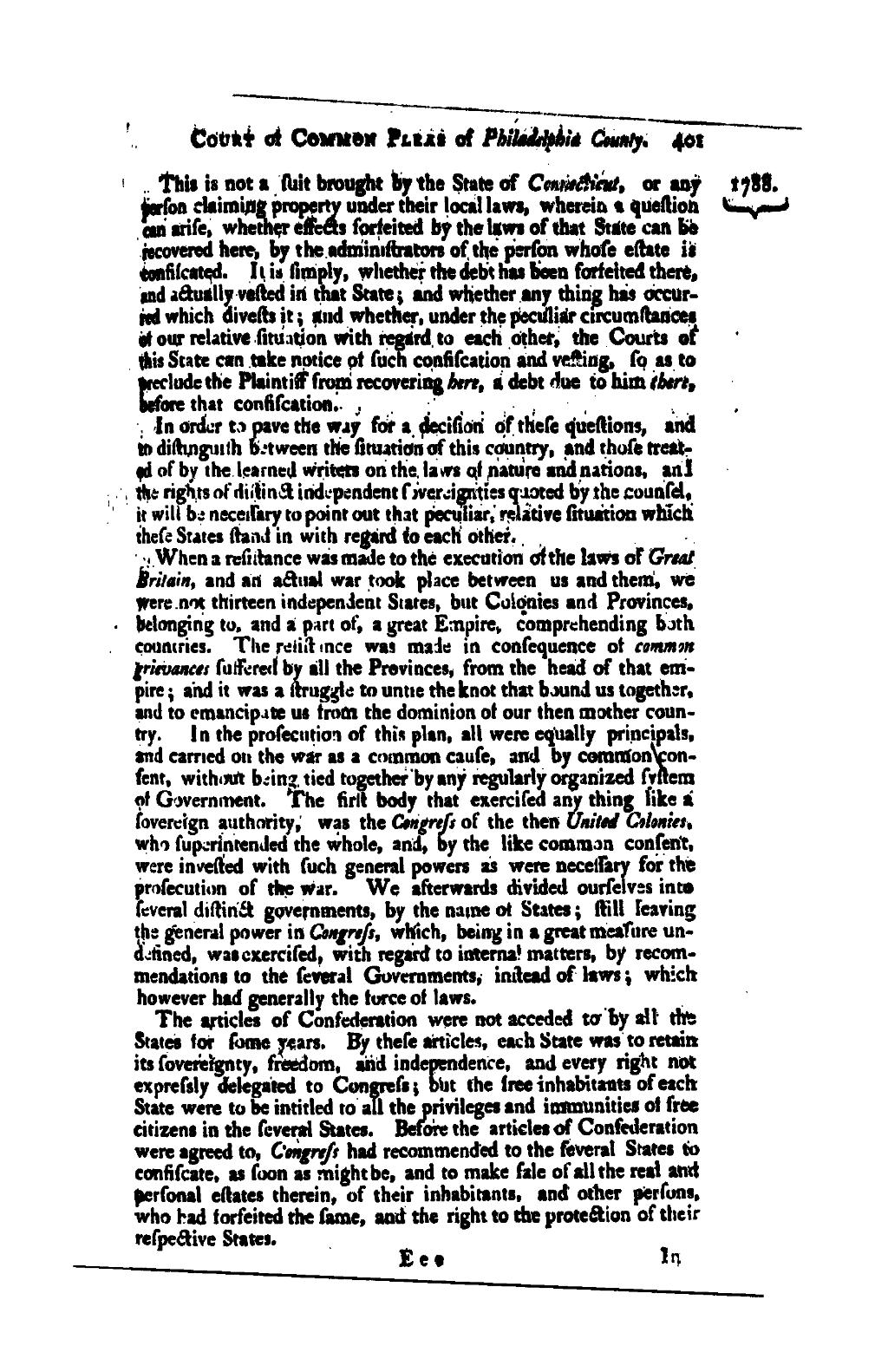1788.![]()
This is not a ſuit brought by the State of Connecticut, or any perſon claiming property under their local laws, wherein a queſtion can ariſe, whether effects forfeited by the laws of the State can be recovered here, by the adminiſtrators of the perſon whoſe eſtate is confiſcated. It is ſimply, whether the debt has been forfeited there, and actually veſted in that State; and whether any thing has occurred which diveſts it; and whether, under the peculiar circumſtances of our relative ſituation with regard to each other, the Courts of this State can take notice of ſuch confiſcation and veſting, ſo as to preclude the Plaintiff from recovering here, a debt due to him there, before that confiſcation.
In order to gave the way for a deciſion of theſe queſtions, and to diſtinguiſh between the ſituation of this country, and thoſe treated of by the learned writers on the laws of nature and nations, and the rights of diſtinct independent ſovereignties quoted by the counſel, it will be neceſſary to point out that peculiar, relative ſituation which theſe States ſtand in which regard to each other.
When a reſiſtance was made to the execution of the laws of Great Britain, and an actual war took place between us and them, we were not thirteen independent States, but Colonies and Provinces, belonging to, and a part of, a great Empire, comprehending both countries. The reſiſtance was made in conſequence of common grievances ſuffered by all the Provinces, from the head of that empire; and it was a ſtruggle to unite the knot that bound us together, and to emancipate us from the dominion of our then mother country. In the proſecution of this plan, all were equally principals, and carried on the war as a common cauſe, and by common conſent, without being tied together by any regularly organized ſyſtem of Government. The firſt body that exerciſed any thing like a ſovereign authority, was the Congreſs of the then United Colonies, who ſuperintended the whole, and, by the like common conſent, were inveſted with ſuch general powers as were neceſſary for the proſecution of the war. We afterwards divided ourſelves into ſeveral diſtinct governments, by the name of States; ſtill leaving the general power in Congreſs, which, being in a great meaſure undefined, was exerciſed, with regard to internal matters, by recommendations to the ſeveral Governments, inſtead of laws; which however had generally the force of laws.
The articles of Confederation were not acceded to by all the States for ſome years. By theſe articles, each State was to retain its ſovereignty, freedom, and independence, and every right not expreſsly delegated to Congreſs, but the free inhabitants of each State were to be intitled to all the privileges and immunities of free citizens in the ſeveral States. Before the article of Confederation were agreed to, Congreſs had recommended to the ſeveral States to confiſcate, as ſoon as might be, and to make ſale of all the real and perſonal eſtates therein, of their inhabitants, and other perſons, who had forfeited the ſame, and the right to the protection of their reſpective States.
